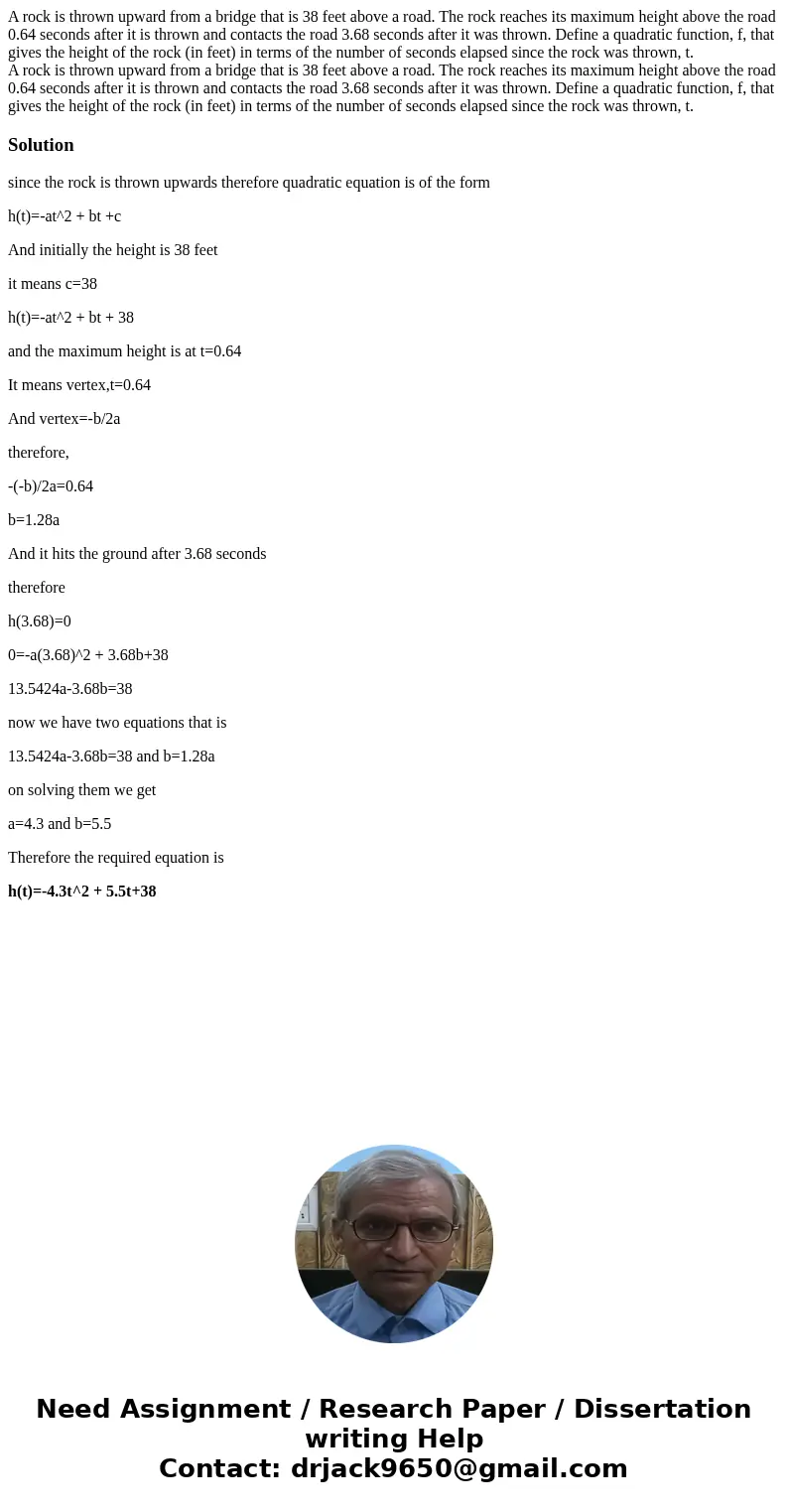A rock is thrown upward from a bridge that is 38 feet above
A rock is thrown upward from a bridge that is 38 feet above a road. The rock reaches its maximum height above the road 0.64 seconds after it is thrown and contacts the road 3.68 seconds after it was thrown. Define a quadratic function, f, that gives the height of the rock (in feet) in terms of the number of seconds elapsed since the rock was thrown, t.
A rock is thrown upward from a bridge that is 38 feet above a road. The rock reaches its maximum height above the road 0.64 seconds after it is thrown and contacts the road 3.68 seconds after it was thrown. Define a quadratic function, f, that gives the height of the rock (in feet) in terms of the number of seconds elapsed since the rock was thrown, t.
Solution
since the rock is thrown upwards therefore quadratic equation is of the form
h(t)=-at^2 + bt +c
And initially the height is 38 feet
it means c=38
h(t)=-at^2 + bt + 38
and the maximum height is at t=0.64
It means vertex,t=0.64
And vertex=-b/2a
therefore,
-(-b)/2a=0.64
b=1.28a
And it hits the ground after 3.68 seconds
therefore
h(3.68)=0
0=-a(3.68)^2 + 3.68b+38
13.5424a-3.68b=38
now we have two equations that is
13.5424a-3.68b=38 and b=1.28a
on solving them we get
a=4.3 and b=5.5
Therefore the required equation is
h(t)=-4.3t^2 + 5.5t+38

 Homework Sourse
Homework Sourse